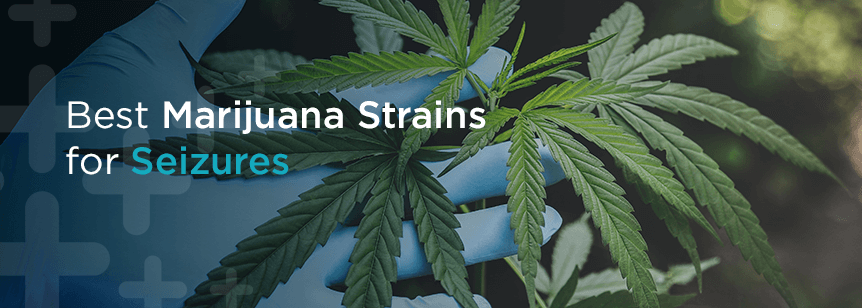
Our brains contain billions of neurons that communicate by creating and receiving electrical impulses. During a seizure, this network goes haywire, causing abnormal movements and changes in behavior and awareness.
People who have seizures must undergo medical examinations and tests to identify the source. If epilepsy is the cause, or seizures are related to brain injury, a stroke, or a tumor, a person may need to take one or more anti-seizure medications to prevent future episodes.
Medical marijuana is also an option. Seizures, including those caused by epilepsy, are a qualifying condition for medical marijuana in 43 states.

Doctors can prescribe Epidiolex, an FDA-approved drug that contains a purified oil-based form of cannabidiol (CBD), to treat seizures associated with two rare types of epilepsy, Lennox-Gastaut syndrome and Dravet syndrome, just as other anti-seizure medications are prescribed. Epidiolex can also be prescribed “off-label” for seizure disorders not related to Lennox-Gastaut syndrome or Dravet syndrome.
The CBD in Epidiolex is believed to work by binding to cannabinoid receptors in the brain to reduce inflammation and abnormal electrical activity.
Although CBD has proven to be effective for seizure control, tetrahydrocannabinol (THC)—marijuana’s other key ingredient—may also play a role. A study in Epilepsy & Behavior of 39 patients at an epilepsy clinic in Oregon, where cannabis is legal, found most reported using cannabis strains with a range of THC and CBD levels to improve their seizure control.
About 30% of patients with epilepsy don’t respond to anti-seizure medications. The Epilepsy Foundation supports the rights of patients and families living with seizures and epilepsy to access all physician-directed care, including medical marijuana.
If you’re considering medical marijuana to help manage epilepsy or another seizure disorder, here are six strains to discuss with your epilepsy specialist and ask about when you visit a budtender at your local medical marijuana dispensary.
Using medical marijuana to reduce seizure frequency can be a matter of trial and error. If you find a successful strain that helps manage seizure disorder, talk to your doctor and/or budtender about a dose and frequency that would be the most therapeutic, while minimizing side effects. In clinical trials of CBD as an epilepsy treatment, patients received CBD oil twice a day.
Side effects of medical marijuana to watch out for include anxiety, panic attacks and even increased seizure frequency, especially with high-THC strains. CBD-dominant medical marijuana may cause minor side effects, such as sleepiness, fatigue, diarrhea, and appetite changes.
Sandra Gordon is a writer specializing in health and medicine for consumers and physicians. She has written for Everyday Health, Prevention, Healthgrades, Parents, the Cleveland Clinic, NYU Langone Health, Harvard Medical School, Your Teen, WebMD and many more.
No Information on MarijuanaDoctors.Com should be used to diagnose, treat, prevent or cure any disease or condition. You can view our Full Disclaimer here.